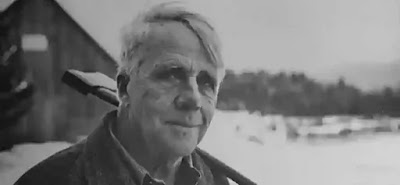Also Read
No Rigid Definition:
Robert Frost had no rigid definition of poetry. He considered poetry as "words that have become deeds". In his essay The Figure a Poem Makes, Frost put forward his ideas on poetry which are really certain elastic principles.
Originality Delight and Wisdom:
Frost felt that originality and initiative should be embodied in poetry to give it an everlasting freshness. A poem's freshness and originality lie in its flow from delight to wisdom "the surprise of remembering something I didn't know I knew."
No Extremist:
Frost was an advocate neither of poetry as pure art nor as pure preaching. Thus to him content and form are equally important. He disapproved of poetry being used as a vehicle for expressing disgust and frustration.
Need for Form:
Frost insisted on the need of form in poetry: 'Form' implies stanzaic form, balance and equilibrium, organization of the matter or substance or meaning. These elements need to be fused in poetry along with the personal idiom of the poet's expression. At the same time the correspondence between the poet's experience and the experience of the reader who reads the poem should be maintained.
Unity of Blending Heterogeneous Elements:
Frost held that the virtue of poetry lay in the unity of blending of heterogeneous elements. With his intense, penetrating poetic vision, he was capable of not only seeing an object objectively but also subjectively. All these heterogeneous elements are to be integrated into a single autonomous entity - the poem. In the achievement of this fusion lay the mystery, the wonder; the magic of poetry.
Momentary Stay Against Confusion; A Clarification of Life:
Frost compared the course of a poem to the course of true love. Each begins in an impulse to which the individual surrenders himself. The ecstasy is not to be static. "It begins in delight, it inclines to the impulse, it assumes direction with the first line laid down, it runs a course of lucky events, and ends in a clarification of life-not necessarily a great clarification, such as sects and cults are founded on, but a momentary stay against confusion".
A Serious Artist and Conscious Craftsman:
Frost did not underplay spontaneity in poetry, but he considered poetry to be serious art form requiring conscious craftsmanship. The poet's pleasure lies in discovering words, images, metaphors, phrases native to the emotion, thought and situation.
Conclusion:
Robert Frost considered the poet to be an accidental collector of impressions and of knowledge. Frost concepts are very much illustrate in his poetry. He felt a poem's logic to be "backward, in retrospect, after the act". The reality that the poet touches is "the vast chaos of all that I have lived through," and from this chaos the poet may, with luck, create a clarification of life which produces a momentary stay against confusion.
